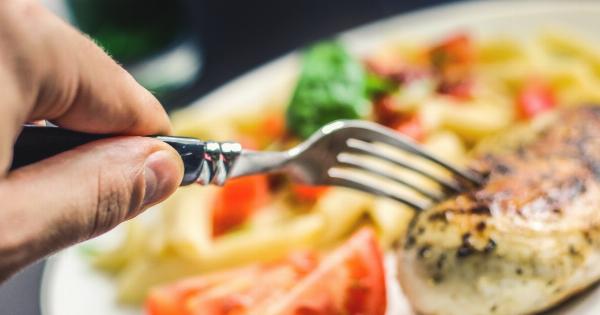Have you ever found yourself eating even when you’re not hungry? Maybe you’ve just finished a big meal but still reach for a snack, or you’re bored at work and head to the vending machine for something to munch on.
It’s not uncommon to eat even when our bodies don’t need food, but why do we do it? In this article, we’ll explore some of the reasons behind why we eat when we’re not hungry.
Emotional eating
One of the biggest reasons we eat when we’re not hungry is because of our emotions. Maybe we’re stressed, bored, or anxious, and we turn to food as a way to cope with those feelings.
Emotional eating can provide a temporary distraction from our problems and make us feel better in the moment, but it can also lead to overeating and weight gain over time.
To combat emotional eating, it’s important to recognize what triggers those feelings in the first place.
If you find yourself reaching for food when you’re stressed or anxious, try finding other ways to manage those emotions, such as exercise, journaling, or talking to a friend. It’s also important to find alternative ways to comfort yourself that don’t involve food, such as taking a bath, listening to music, or practicing deep breathing exercises.
External cues
Another reason we eat when we’re not hungry is because of external cues. This could be anything from the sight or smell of food to social situations where food is present.
For example, maybe you’re not hungry at a party, but you see everyone else eating and feel pressure to join in, even if you don’t really want to.
It’s important to be mindful of these external cues and recognize when they’re influencing our eating habits. If you find yourself eating just because there’s food around, try to develop strategies to help you resist temptation.
This might mean avoiding situations where food is present, keeping tempting snacks out of sight, or finding distractions to keep your mind off food.
Habit
Another reason we eat when we’re not hungry is simply out of habit. Maybe you’ve always had a snack before bed, or you grab a candy bar every time you pass the vending machine at work.
These habits can be hard to break, even if we’re not hungry.
To break a food habit, try replacing it with a healthier one. For example, if you always have a snack before bed, try having a cup of herbal tea instead. If you usually grab a candy bar at work, bring a piece of fruit or some nuts to snack on instead.
Over time, these healthier habits can become just as ingrained as the old ones.
Low blood sugar
Sometimes, we eat when we’re not hungry because our blood sugar is low. This can happen if we go too long without eating, or if we eat a meal that’s high in sugar or refined carbs that causes our blood sugar to spike and then crash.
To avoid low blood sugar and the urge to eat when we’re not hungry, it’s important to eat regular meals and snacks throughout the day that are balanced with protein, fiber, and healthy fats.
This will help keep our blood sugar stable and prevent those sudden drops that make us reach for a snack.
Social pressure
Finally, we often eat when we’re not hungry because of social pressures. Maybe our friends or family members are encouraging us to eat more, or we’re afraid of offending someone if we don’t finish our plate.
This can lead to overeating and feeling uncomfortable or guilty afterwards.
To overcome social pressure to eat when we’re not hungry, it’s important to be assertive and set boundaries.
Let people know that you’re full and don’t need any more food, or ask for smaller portions so you can enjoy your meal without feeling overwhelmed. Remember, it’s okay to say no to food, and your loved ones will understand and respect your choices.
Conclusion
Eating when we’re not hungry is something many of us struggle with, but it doesn’t have to control our lives.
By recognizing the reasons behind our eating habits and developing strategies to combat them, we can learn to listen to our bodies and eat when we’re truly hungry, rather than out of emotion, habit, or social pressure.































